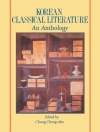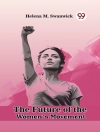In Modern Arabic Poetry, Waed Athamneh addresses enduring questions raised from the 1950s to the present as she investigates the impact of past and contemporary Middle Eastern politics on its poetry. Focusing on the works of three prominent poets, Iraqi ʿAbd al-Wahhāb al-Bayātī (1926–1999), Egyptian Aḥmad ʿAbd al-Muʿṭī Ḥijāzī (b. 1935), and Palestinian Maḥmūd Darwīsh (1941–2008), Athamneh argues that political changes in the modern Arab world—including the 1967 war and the fall of Nasserism, the ongoing Israeli-Palestinian conflict, and, in Ḥijāzī’s case, the 2011 Arab Uprising and its aftermath—inspired transitions and new directions in these poets’ works. Enhanced by Athamneh’s original translations of a number of the Arabic texts discussed, as well as translations published previously, Modern Arabic Poetry brings these poets fully into the purview of contemporary literary, political, and critical discourse. It argues that their individual responses to political changes proceed in three distinct directions: the metapoetic, in which the poet disengages from the poetry of political commitment to find inspiration in artistic (self-)exploration; the recommitted, in which new political revolutions inspire the poet to resume writing and publishing poetry; and the humanist, in which the poet comes to terms of coexistence with permanent or unresolved conflict.
قائمة المحتويات
Acknowledgments
Note on Translation and Transliteration
Introduction
1. The Politics and Poetics of the Modern Arab World
2. From Iltizām to Metapoetry: ʿAbd al-Wahhāb al-Bayātī
3. From Iltizām to the Arab Uprising: Aḥmad ʿAbd al-Muʿṭī Ḥijāzī
4. From Militant Iltizām to Humanist: Maḥmūd Darwīsh
Conclusion: The Poets and Their Vocation in the Modern World
Appendix: Interview with Aḥmad ʿAbd al-Muʿṭī Ḥijāzī
Notes
Bibliography
Index
عن المؤلف
Waed Athamneh is associate professor of Arabic studies at Connecticut College. She is the author of Modern Arabic Poetry: Revolution and Conflict (University of Notre Dame Press, 2017).












